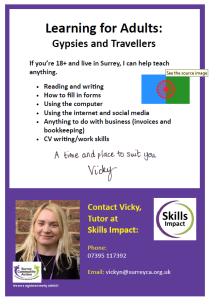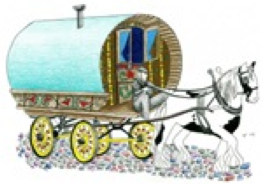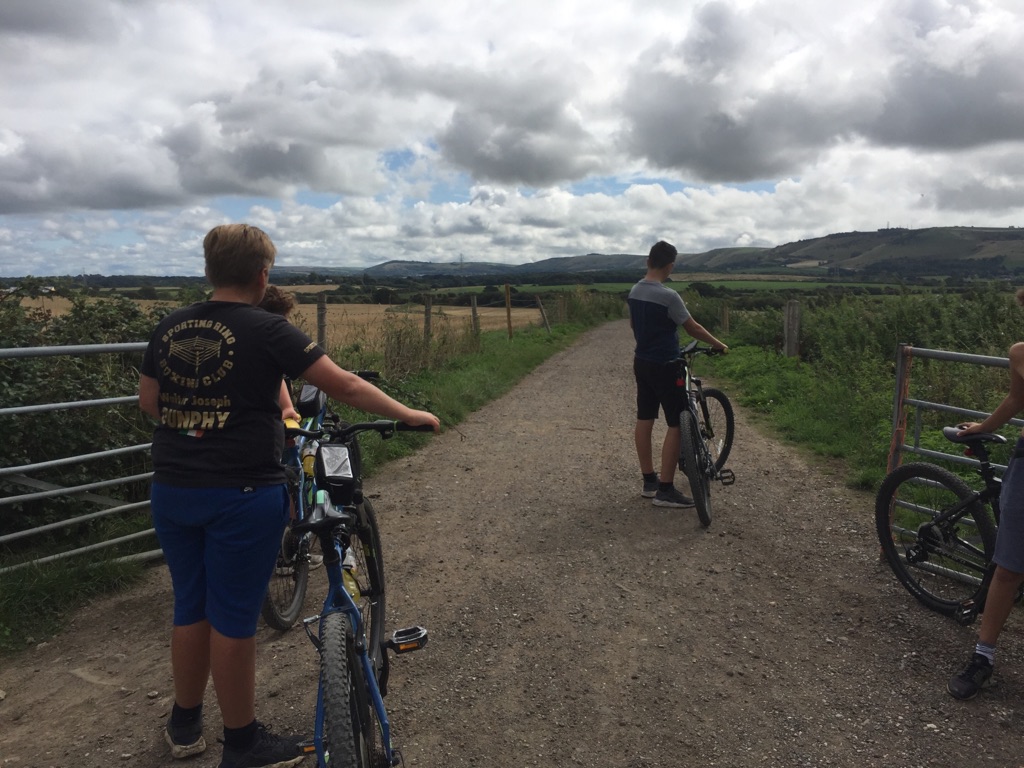There are many carers living in Surrey’s large Gypsy, Roma and Traveller (GRT) Communities.
Unfortunately, people in the GRT communities have significantly poorer health, including a higher incidence of long-term health conditions, and shortened life expectancy, compared to the general population.
People are less likely to access health services and other support for reasons including:
- Lack of access – including difficulties around frequently moving, which can make it hard to register with a GP
- Lack of understanding of the health and social care system
- Lack of trust and a belief that the system may discriminate and not understand people’s needs.
- There can be language barriers and difficulties because of poor reading abilities.
Being viewed as a ‘hard to reach’ group, and seen as a community that doesn’t always welcome outside help isn’t helpful to carers’ situations.
As a carer
- You may find it hard to consider yourself a ‘carer’ – the role is less recognized in the GRT community, less valued, and people may not understand the pressures you are under.
- Culturally it can be hard to look outside for help, especially if the person you’re caring for has mental health or addiction issues. There’s pride in self-reliance and keeping things within the community which can make it extra hard for carers.
- You may have money worries because of additional costs on already difficult finances.
- You may feel you need to fight for help or equipment.
- There’s the practical, daily difficulties of managing caring in a small space.
- If the person you’re caring for is very unwell, you may have to consider major changes, including giving up your traditional way of life.
How to help yourself
- Realise that you are a carer. Your caring role might affect you emotionally, practically or financially. You need to look after yourself too. See more about wellbeing here.
- Let others in your family/community know you are a carer and that it affects you.
- Make sure everyone involved in the care of the person you’re looking after also knows you are their carer, and you need to be kept informed, updated, and involved in their care.
- As a carer, you have rights too, including to having your needs assessed. See more about rights here. It’s especially important that your GP if you have one, knows you’re a carer. Find out what to do here.
How Action for Carers can help
Take a look at our support pages to find out how we can help you.
Surrey Young Carers, part of Action for Carers, have specialized staff, including teams of Education Advisors who go into schools, who understand the challenges young carers can face, and are aware of the additional needs young carers from these communities may face.
Further sources of help in Surrey
Surrey Community Action have a Gypsy and Traveller Support Project, providing access to advice and advocacy, as well as support with housing.
 They also have a Learning Skills Scheme. Skills Impact Tutor Vicky can assist with a wide range of learning, such as computer/internet skills, business skills (like invoices/bookkeeping), reading and writing, etc. For more info email Vicky at [email protected] or call her on 07395 117392.
They also have a Learning Skills Scheme. Skills Impact Tutor Vicky can assist with a wide range of learning, such as computer/internet skills, business skills (like invoices/bookkeeping), reading and writing, etc. For more info email Vicky at [email protected] or call her on 07395 117392.
Friends, Families and Travellers is a charity based in Brighton. Its team of Community Support Workers go out to support people from the Gypsy and Traveller communities in Surrey and Sussex, helping on issues including general health (covering GP access), benefits, mental health and dental care. The Workers often help people access further support from mainstream services. The website includes advice for GRT carers.
The Surrey Gypsy Traveller Communities Forum has information on lots of different issues.
Further sources of help and information nationally
There are two national support organisations, The Traveller Movement and Travellers Times.


